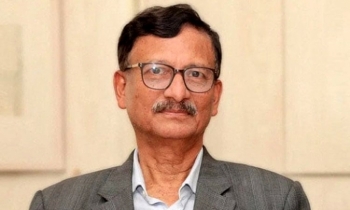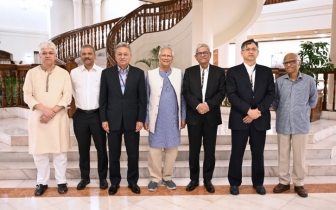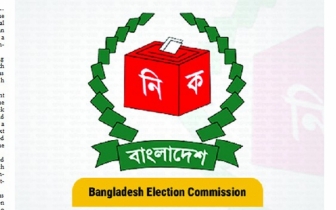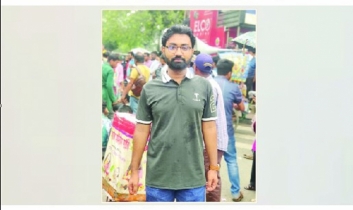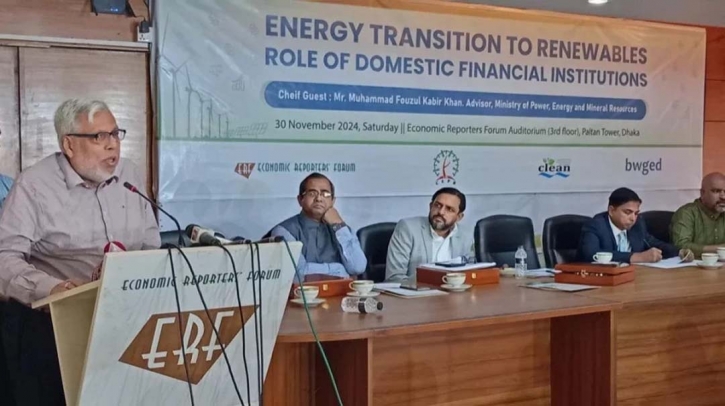
Staff Correspondent, Dhaka
The government will not allow any more independent power producer (IPP) plants to be set up in the private sector as the private sector will have to set up power plants under merchant power plant policy (MPPP) from which the government will purchase a maximum 10-20 percent power from the plant.
Power and Energy Adviser Dr Fouzul Kabir Khan said this while addressing a seminar titled ‘Rapid Transition to Renewables: Role of Domestic Financial Institution’, organized by the Economic Reporters Forum (ERF) at its auditorium on Saturday.
Currently, the government guarantees the total electricity of an IPP power plant set up under a private power generation policy.
Under the new policy, the adviser said, the private producer has to sell electricity through his buyer through the government grid system by paying a wheeling charge.
During the previous Awami League regime, banks have financed many projects seeking the faces of the people, not based on the assets of the investors, he added.
The adviser went on to say: “Now, when these loans are defaulting, the banks are checking their balance sheets like those of S Alam and Beximco and finding the balance sheets are empty and there is no asset.”
Fouzul Kabir said the interim government’s focus on promoting renewable energy (RE) and stressed that there is no alternative to RE to get electricity as it has been a compulsion for the country’s export-oriented garment sector.
Held with ERF President Mohammad Refayet Ullah Mirdha in the chair, the seminar was also addressed by Centre for Policy Dialogue’s research director Dr Khondaker Golam Moazzem, the City Bank’s business country manager Ashanur Rahman and chief executive officer of CLEAN Hasan Mehedi.
Chairperson of Centre for Environment and Participatory Research (CEPR) Gouranga Nandy made a presentation on the topic of the seminar and ERF general secretary Abul Kashem conducted the event.
Dr Kabir said that is not true the scarcity of land has been the main bottleneck in promotion of the solar power projects, and noted that there are huge lands in different government departments that remain unutilized and empty.
He said: “Those thousands of acres of land could be utilized for the solar power plants.”
The adviser opposed the idea of tax exemption for importing different components of solar power like inverters, panels and structures saying that these should not be imported from abroad.
Rather, these should be produced locally like those are in India, he added.
Dr Kabir also opposed the demand for reconsidering the cancelled 37 solar power plants which were selected based on Speed Increase of Power and Energy Supply (Special Provision) Act 2010 and issued letter of intent (ILO) by the previous regime.
He said: “There is no scope for reconsidering those projects as the High Court has already scrapped the Law.”
Fouzul Kabir urged the businesspeople to invest in different sectors including power and energy on the basis of business competition.
He also said: “The government has opened up all businesses for all businessmen to get jobs through competition. Now the days of obtaining business through favour and faces have gone.
Dr Khondaker Golam Moazzem said that the local banks often are not interested in financing the RE projects as those are long-term ones and banks collect deposits on a short-term basis.
So, there is a risk in financing the long-term projects and the central bank takes initiative to cover the risk, he added.
Gouranga Nandy said that though the banks are doing green financing to implement renewable energy projects, there is no upward trend in the investment in solar energy as there is no specific guideline for the banks to invest in the sector.

